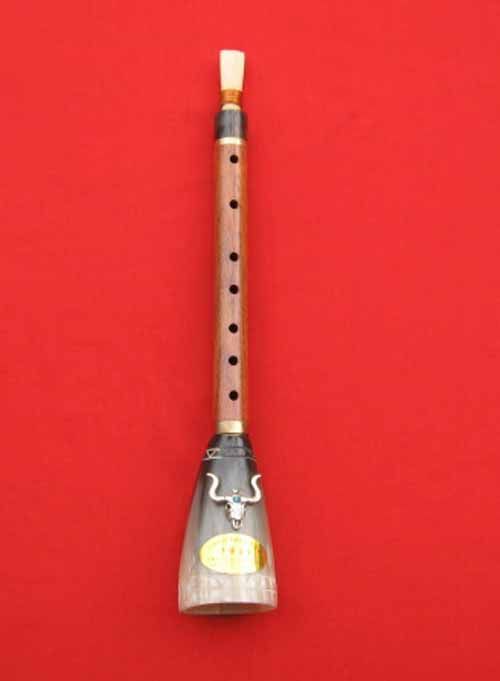The tone of the scorpion
637 views · Organized by Susan on 2022-03-15
The timbre of bili is either high-pitched and crisp, or sad and mournful, with distinct texture. As a part of Hu Le, it was spread to the Central Plains via the Silk Road, and it was also loved by people.
In the evening of that day, An Wanshan, a musician of the Hu people, faced the sunset light hidden by the yellow sand, and blew his scorpion again. The desolate and sad sound made the poet Li Qi sigh with emotion and wrote "Listen to An Wanshan". The Song of Blowing the Brick:"The Nanshan cut the bamboo as a scorpion, and this music originated from Qiuci.
The popular Chinese music turned strange, and the Hu people in Liangzhou played it for me.
Nearby neighbors who heard it sighed a lot, and distant guests were all in tears when they missed their hometown.
The world understands listening but not rewarding, and flows freely in the long wind.
Withered mulberry and old cypress roamed in the cold, and nine young phoenixes chirped wildly.
The dragon roared and the tiger roared for a while, and Wan Lai and Hundred Springs corresponded to the autumn.
All of a sudden, it is even more mixed with Yuyang, and the yellow cloud is depressed and dark in the daytime.
The change of tone is like the smell of willow and spring, and the flowers in the forest are fresh to the eyes.
On the New Year's Eve, candles are listed in the hall, and a glass of fine wine sings. "
The important reason for the popularity of the bili in more than a thousand years is the unique artistic function of the bili. With the support of breath, bili can express a mellow and continuous, euphemistic undulating continuous sound. Its timbre is deep, rich and sad, and it has a strong motivating force for people's thoughts and feelings, especially when it expresses grief, anger and excitement. It has a unique function.

Balaman is the legacy of the ancient kiln. Balaman is called "Pipi" in Uyghur language, which means reed. Balaman can be used in all singing and dancing activities in Uyghur.
In the Uyghur classical music "Twelve Muqam", it often plays the part of "Joan Lackman" (that is, Daqu) in scattered order. A group of Balaman solos reflecting new life appeared, such as "Beautiful Motherland" and "Prosperous Hotan", which were well received by the masses.
Guanzi and Balaman, the descendants of the two ancient jigsaws, will surely regain their youthful brilliance and appear in the treasure house of music in our country.
Involving musical instruments
Guanzi (pinyin: guǎn zi) is a wind instrument. In ancient China, it was called "筚篥" or "Luguan". Its structure consists of three parts: the whistle, the intruder and the cylindrical body.
Guess you like
Organized by vespa on 2022-03-15
Modern pipes are composed of whistle, intruder and pipe body. The small tube whistle is made of reed, one end is tied with a thin wire, the other end is flattened, and it is directly inserted into the upper end of the tube, with a higher pronunciation.
read >>
 渝公网安备 50010702504639号
渝公网安备 50010702504639号